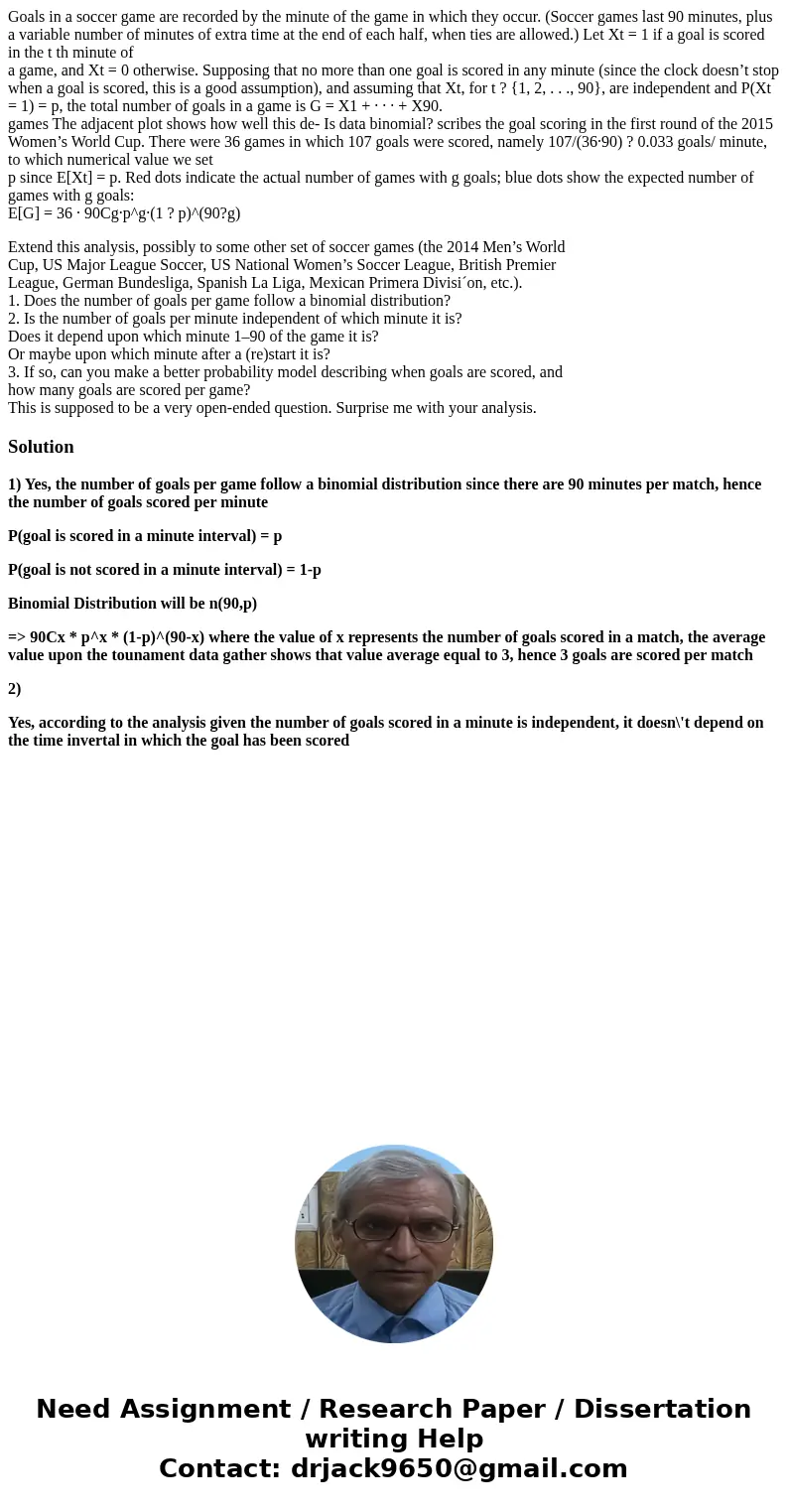Goals in a soccer game are recorded by the minute of the gam
Goals in a soccer game are recorded by the minute of the game in which they occur. (Soccer games last 90 minutes, plus a variable number of minutes of extra time at the end of each half, when ties are allowed.) Let Xt = 1 if a goal is scored in the t th minute of
a game, and Xt = 0 otherwise. Supposing that no more than one goal is scored in any minute (since the clock doesn’t stop when a goal is scored, this is a good assumption), and assuming that Xt, for t ? {1, 2, . . ., 90}, are independent and P(Xt = 1) = p, the total number of goals in a game is G = X1 + · · · + X90.
games The adjacent plot shows how well this de- Is data binomial? scribes the goal scoring in the first round of the 2015 Women’s World Cup. There were 36 games in which 107 goals were scored, namely 107/(36·90) ? 0.033 goals/ minute, to which numerical value we set
p since E[Xt] = p. Red dots indicate the actual number of games with g goals; blue dots show the expected number of games with g goals:
E[G] = 36 · 90Cg·p^g·(1 ? p)^(90?g)
Extend this analysis, possibly to some other set of soccer games (the 2014 Men’s World
Cup, US Major League Soccer, US National Women’s Soccer League, British Premier
League, German Bundesliga, Spanish La Liga, Mexican Primera Divisi´on, etc.).
1. Does the number of goals per game follow a binomial distribution?
2. Is the number of goals per minute independent of which minute it is?
Does it depend upon which minute 1–90 of the game it is?
Or maybe upon which minute after a (re)start it is?
3. If so, can you make a better probability model describing when goals are scored, and
how many goals are scored per game?
This is supposed to be a very open-ended question. Surprise me with your analysis.
Solution
1) Yes, the number of goals per game follow a binomial distribution since there are 90 minutes per match, hence the number of goals scored per minute
P(goal is scored in a minute interval) = p
P(goal is not scored in a minute interval) = 1-p
Binomial Distribution will be n(90,p)
=> 90Cx * p^x * (1-p)^(90-x) where the value of x represents the number of goals scored in a match, the average value upon the tounament data gather shows that value average equal to 3, hence 3 goals are scored per match
2)
Yes, according to the analysis given the number of goals scored in a minute is independent, it doesn\'t depend on the time invertal in which the goal has been scored

 Homework Sourse
Homework Sourse